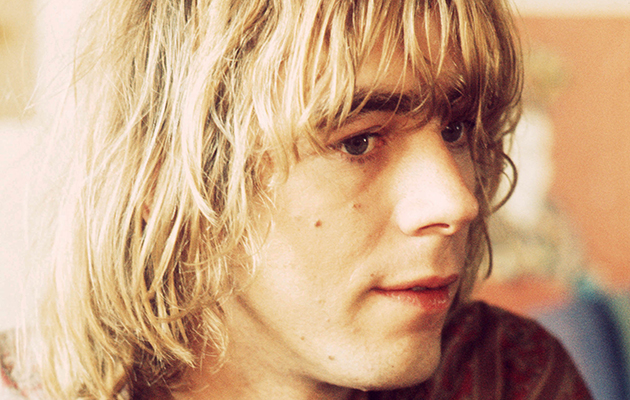Subscribe to Uncut and make huge savings on the cover price - find out by clicking here! Originally published in Uncut's May 2013 issue (Take 192) His drummers needed to make him laugh. His manager needed to keep hold of the corkscrew. Yet somehow, in the early ’70s, Kevin Ayers made four extrao...
“Joy Of A Toy was a terrific record, but no-one knew what to make of it,” says Peter Jenner. “It wasn’t psychedelic and it wasn’t blues, so it sort of got lost, unfairly, because Kevin didn’t fit easily into the system. People thought he was a bit effete, I suspect, and he was never big with the long-haired underground. He was a bit too elegant, like Bryan Ferry, but before his time, and he didn’t have Brian Eno with feathers on his shoulders to help him along. So he didn’t sort of fit. He was too sort of singer-songwriter, too sort of cabaret, and I think that was always the problem with Kevin. He didn’t want to compromise. He did what he did and that was it.
“We wanted him to put a band together to promote the album. But of course he didn’t want to have a standard rock band, so he formed The Whole World, who we all loved. They were great musicians, but it was very eccentric.”
Ayers first of all enlisted Joy Of A Toy arranger David Bedford on keyboards, free-jazz sax player Lol Coxhill, who he’d apparently seen busking on Hungerford Bridge, drummer Mick Fincher (sometimes replaced by Robert Wyatt for live shows) and the teenage Mike Oldfield on bass and guitar. Oldfield recalls a five-minute audition at EMI’s Manchester Square HQ to what he thought was a sceptical response before Ayers announced casually that the gig was his.
“And that began three years of sitting in a transit van, going up and down the M1, A1, A5, all for about eight quid a gig,” Oldfield tells Uncut. “I wasn’t yet 17, so every time I went abroad I had to apply to the children’s department for permission to travel. I had to have a chaperone. A few times, not very often, we used to fly, so I’d be there with my chaperone on the plane.
“We had some strange musicians in the band. David Bedford would suddenly decide to play the organ with cricket gloves on, or with a brick, and Lol would do some extraordinary saxophone work. Robert Wyatt would play with us sometimes. He was an extraordinary drummer. You’d be playing a song and he’d suddenly think, ‘I don’t feel like playing this rhythm anymore, I’m just going to make sounds with my drums.’ This would be in the middle of a song, and I’d have to try to keep the rhythm going with this extraordinary improvisation going on and somehow he’d time it so he’d come in spank on the beat when he’d finished having his fit.
“We became very avant-garde, very leftfield and did very strange things that Kevin would encourage that bemused audiences,” Oldfield goes on. “It was like going to see one of those modern art exhibitions that baffle people.”
Such jolly anarchy prevailed also in the studio when in April 1970 The Whole World started work on Shooting At The Moon at Abbey Road, with Jenner again producing. Shooting At The Moon was a dramatic departure from the melodious drift of Joy Of A Toy, more reminiscent in places of the dense discordance of Soft Machine and altogether a head-spinning mix of psychedelic pop whimsy (“Clarence In Wonderland”; “The Oyster And The Flying Fish”, a delightful duet with Bridget St John), a debonair jazz ballad (“May I?”), fearsome rock (“Lunatics Lament”, with its flesh-shredding Oldfield guitar solo, the title track) and free form improv (“Pisser Dans Un Violon”, “Underwater”). “The Whole World was a kind of joke about Soft Machine,” says Robert Wyatt. “David Bedford was a very serious and well-respected avant-garde composer and Lol was similarly respected as a jazz musician. But in The Whole World, they also doubled as comedians, which was exactly what was right for Kevin. There’s a lovely thing he did, when he was auditioning drummers. They’d come along and all he’d ask was, ‘Can you play something that makes me laugh?’ I thought that was absolutely brilliant and so typically Kevin.”
Like us on Facebook or follow us on Twitter to keep up to date with the latest news from Uncut.



